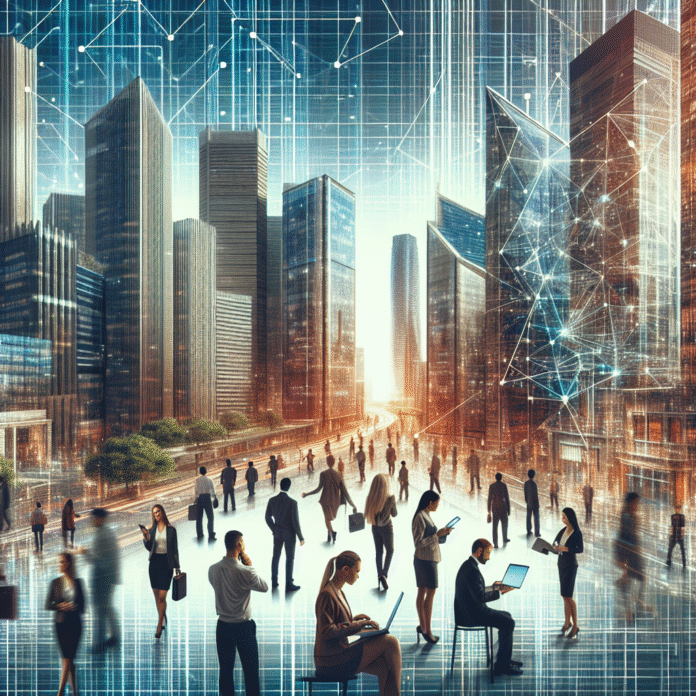As we head deeper into the 21st century, the landscape of work is undergoing a profound transformation driven by globalization, technological advancements, and shifting societal norms. The COVID-19 pandemic has accelerated many of these changes, revealing new ways of working that demand adaptability from businesses and workers alike. This article explores the impact of globalization on employment patterns, the roles of technology, and the changing expectations of the workforce, while also suggesting strategies for thriving in this evolving environment.
The Globalized Workforce
Globalization has resulted in a more interconnected world, where ideas, skills, and talent can cross borders easily. This shift has led to:
Diverse Skill Sets
Companies are now sourcing talent from a broader pool, leading to diverse teams that bring varied perspectives and skills. This diversity fosters innovation but also necessitates new management strategies that embrace inclusivity and cultural sensitivity.
Remote Work Dynamics
With advances in communication technology, remote work has become mainstream. Organizations can now tap into global talent without the constraints of geography. This flexibility allows companies to respond swiftly to changing market conditions, but it also presents challenges in maintaining team cohesion and company culture.
Economic Disparities
While globalization opens up opportunities, it also highlights economic disparities. Workers in emerging markets may face competition from those in developed regions, challenging traditional job security. Businesses must navigate these complexities while fostering ethical labor practices.
The Role of Technology
Technological advancements are reshaping industries and redefining jobs. Key trends include:
Automation and AI
Automation is transforming routine tasks, allowing workers to focus on more strategic and creative activities. However, this shift raises concerns about job displacement. Providing training and re-skilling opportunities will be vital in ensuring that the workforce adapts to new roles created by technology rather than being sidelined by it.
Collaboration Tools
Tools like Slack, Zoom, and Asana have changed how teams communicate and collaborate. Asynchronous communication is becoming more prevalent, requiring workers to develop strong self-management skills. Organizations must invest in training to help employees maximally leverage these technologies.
Data-Driven Decision Making
Access to big data enables organizations to make informed decisions that align closely with market demands. However, employees must be equipped with data literacy skills to interpret and act on insights effectively.
Shifting Workforce Expectations
The modern workforce is no longer just seeking stable jobs; expectations have evolved. People are increasingly interested in:
Work-Life Balance
Post-pandemic, many employees prioritize work-life balance, seeking flexible hours and remote work options. Businesses that offer these benefits often enjoy higher employee satisfaction rates and improved retention.
Purpose and Impact
Today’s workers want to feel that their jobs contribute positively to society. Organizations that align their mission with social impact can attract and retain top talent. Companies should actively communicate their values and foster a culture of purpose.
Continuous Learning
With the fast pace of change, employees desire opportunities for continuous learning and development. Organizations must prioritize upskilling and reskilling, offering pathways for career advancement that cater to employees’ aspirations.
Strategies for Adaptation
To thrive in this dynamic environment, organizations and workers can adopt several strategies:
Develop a Flexible Workforce
Building a flexible workforce involves not just remote work but also adaptable roles and responsibilities. Cross-training employees can ensure that teams remain versatile and resilient in the face of disruptions.
Invest in Technology
Companies should not only implement cutting-edge technologies but also ensure their workforce is trained in using these tools effectively. Regular training and workshops can help mitigate the skills gap created by rapid advancements.
Foster a Culture of Inclusion
Creating an inclusive workplace that values diversity can lead to enhanced problem-solving and innovation. Encourage open dialogue, and ensure that all voices are heard and valued within the organization.
Emphasize Well-Being
Prioritizing mental health and well-being in the workplace is essential. Companies should offer resources and support systems to help employees manage stress and maintain a healthy work-life balance.
Conclusion
The future of work is undoubtedly globalized, fast-paced, and continuously evolving. To thrive in this new reality, individuals and organizations must embrace change, cultivate adaptability, and focus on fostering inclusive environments that prioritize well-being and continuous learning. By doing so, they can not only survive but thrive in a world where the only constant is change.






